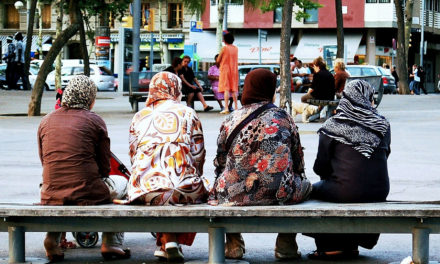In Islam, the family unit is the cornerstone of a stable society, with Quranic verses (49:13, 42:49-50, 58:2) and Prophetic traditions emphasizing the responsibilities of family life. For example, in the Hadith, marriage is described as half of one’s religion and mothers are afforded immense honor, with paradise described as lying beneath their feet. Thus, for many Muslims, the journey to parenthood is not only a natural aspiration but an emotional pursuit of Islamic values. Nonetheless, Islamic teachings acknowledge that not everyone will be granted children as part of God’s divine wisdom.
Infertility, biomedically defined as the inability to achieve pregnancy despite regular unprotected intercourse, is a global health issue. According to the World Health Organization, it affects roughly 18% of couples globally and 15% of couples in the U.S. While reported rates in North African and Middle Eastern regions are relatively low — 2.1% and 3.1% respectively — data among Muslims in the West remain sparse. Yet, the lack of research and community dialogue does not diminish the deeply personal and challenging experiences that Muslim couples face.
Infertility, which affects both men and women, can provoke emotional distress, isolation, and existential questions regarding one’s worth and purpose. However, Quranic verses emphasize that infertility is neither a personal failure nor divine punishment but rather a manifestation of God’s will as Al-Khāliq (The Creator). The Quran states, “To God alone belongs the kingdom of the heavens and the earth. He creates whatever He wills. He blesses whoever He wills with daughters and… sons… and leaves whoever He wills infertile” (42:49-50).
While modern medicine pathologizes infertility, framing it solely as a medical condition requiring biomedical intervention, Islam reminds us that it is ultimately a matter of qadr (divine decree). In a Hadith narrated by Abu Dawud, Prophet Mohammed (salla Allahu ‘alayhi wa sallam) said, “Verily, God sent down the disease and the cure, and for every disease He made a cure. Seek treatment, but do not seek treatment by the unlawful” (Sunan Abu Dawud, Hadith 3874).
Infertility is a condition decreed by God, and it may also be alleviated by His will. Therefore, seeking medical treatment is permissible so long as it remains within the bounds of Islamic guidelines. However, such treatment is not obligatory, and impermissible methods must be avoided. More importantly, perhaps, is the call to turn towards God for relief and guidance for all things are possible by His will. One should not neglect sincere dua and adopting patience as these behaviors attract God’s attention. Indeed, Prophet Zakariyya’s (alayhi as salam) recourse to childlessness was prayer.
Muslim couples may address infertility through social means like fostering (kafala) or biomedical options such as In Vitro Fertilization (IVF) and Intrauterine Insemination (IUI). IVF involves fertilizing an egg with sperm outside the body then implanting the embryo into the uterus. IUI involves placing sperm directly into the uterus near ovulation.
Sunni jurist councils permit these procedures only within a valid Islamic marriage, using the couple’s sperm and egg. Sperm or egg donation is considered impermissible. Contemporary bioethics: Islamic perspective. This stems from Islam’s emphasis on protecting nasl (progeny) and nasab (lineage), both of which are among the essential objectives of the Maqasid al-Shari’ah, the overarching principles that guide Islamic law.
Moreover, legal precedents based on scriptural sources – such as the child is accorded to the bedspread (Ṣaḥiḥ al-Bukhari, Hadith 6817) indicating that fatherhood is attributed to licit marriages, and “None can be their mothers except those who gave them birth” (Quran 58:2 ) – reject third-party involvement. Ensuring clear biological parentage safeguards family structure and inheritance rights in accordance with Islamic values.
Gestational surrogacy, where an embryo from the couple is implanted in another woman due to medical need, is similarly impermissible in Sunni Islam as it introduces a distinction between the biological mother and the gestational (rearing) mother. This confuses lineage, violating the imperative of hifz al-nasl. Additionally, the Quran states, “Their mothers are none but those who gave birth to them” highlighting that motherhood is attributed to the one who carries and gives birth to the child (58:2). Juridical rulings from Shia authorities vary as they do not generalize the notion of motherhood based on this verse, and have different legal precedents they draw upon related to licit marriages and genetic lineage; so called “third party” involvement may be permitted in some cases.
Advancements in reproductive technology offer hope amid infertility, but for Muslims, they call for reflection and decision-making rooted in Islam. These tools are blessings from God when used in a halal way but must be paired with tawakkul, trust in God. The ability or inability to conceive does not diminish one’s value as a beloved servant in His sight. Rather, infertility may be a test that strengthens belief through reliance on Him and the thoughtful integration of Islamic bioethical principles in health care decision-making.














